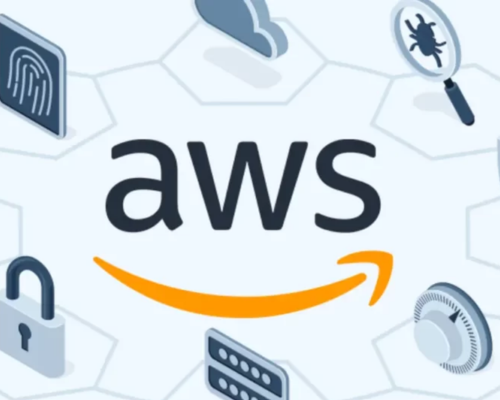Join our online training on AWS architecture and enhance your skills with step-by-step learning designed to advance your AWS career. With a team of 20+ industry experts averaging 12+ years of experience, Neel Technologies provides top-notch training to prepare you for roles in Cloud Architecting, Solutions Architecting, and Engineering. Learn from the best and achieve mastery in AWS architecture.

AWS Training in Chandigarh offers comprehensive learning that covers essential to advanced AWS concepts, including over 70 cloud services. Participants will gain hands-on experience with real-world AWS implementations, equipping them with the skills to architect and manage scalable, reliable, and secure AWS solutions. The training focuses on best practices for optimizing performance and cost in AWS, helping learners develop the expertise to manage infrastructure and deploy applications effectively.
Ideal for both beginners and experienced professionals, this program is tailored for those aspiring to take on advanced roles. It’s perfect for cloud software experts, technicians, programmers, cloud architects, and DevOps specialists. The certification-focused approach ensures that participants are well-prepared to achieve AWS certification, further advancing their careers in the cloud domain.

Amazon Web Services (AWS) is the world's most comprehensive and widely adopted cloud platform. It offers over 200 fully featured services from data centers globally. AWS helps customers—from startups to enterprises to government agencies—lower costs, become more agile, and innovate faster.
AWS certifications validate cloud expertise and are available for various roles including developers, administrators, and architects. Certifications are valid for three years and can be recertified. There are numerous testing centers worldwide.
There’s no better time to learn AWS than now. With a surge in job opportunities and business ventures requiring AWS certification, gaining expertise in AWS will set you apart and accelerate your career goals.
Businesses are rapidly migrating to the cloud. According to Cisco, global data center IP traffic is expected to reach 20.6 Zettabytes by the end of 2024. The public cloud market is growing at a rate of 17.5%.
AWS holds approximately one-third of the Infrastructure as a Service (IaaS) market, significantly outperforming competitors. This growth highlights immense potential in the IaaS sector.
In the US, finding skilled cloud computing professionals is challenging. Around 60% of cloud computing job postings require AWS-related skills.
AWS certification continues to be in high demand. The AWS market is expected to reach $236 billion with a CAGR of 22%, and there are over 380,000 cloud computing jobs globally.

The rise of AI and Machine Learning is pushing more IT professionals towards cloud computing. Forbes reports that AI and ML will drive significant cloud computing adoption.

AWS pioneered public cloud services and has maintained a lead over competitors. With a head start since 2006, AWS boasts a robust ecosystem with over 180,000 developers.

Beginners and learners can access AWS services with a free tier account. This includes ongoing free services and a variety of free trials for premium services.
Find answers to the most common questions about AWS certifications and their benefits. Still have queries? Feel free to contact us.
Here are some key responsibilities typically expected from an AWS engineer. Keep in mind, responsibilities can vary depending on the organization's size and nature:
Develop and manage the AWS cloud infrastructure, ensuring its effective deployment and scaling to meet the organization’s needs.
Oversee the process of building, testing, and deploying applications and systems into production environments.
Implement and manage CI/CD pipelines to automate testing, integration, and deployment processes.
Work with cross-functional teams to design and implement software services that scale with the organization’s needs.
Safeguard the infrastructure by implementing advanced cloud security protocols to protect sensitive data and services.
Research new technological solutions and cloud offerings, recommending the best-fit tools and services for the organization’s infrastructure.
Set up and manage continuous integration and continuous delivery (CI/CD) pipelines to ensure efficient software delivery.
Evaluate existing processes and suggest improvements to enhance efficiency and scalability.
Diagnose and resolve issues across various platforms and applications to maintain system stability and performance.
Oversee testing to verify the quality and performance of services and products before they are deployed in production.
There are no strict prerequisites to start learning AWS, but the following recommendations can enhance your learning experience:

Neel Technologies has a group of highly experienced and qualified trainers . They are always dedicated towards improving the students, and make them learn more, with their experiences. The trainees here are always concerned about all round development of students, all the things taught by them is not only theoretical, but special measures are taken by them to make students get their implementations too.
We are starting new batch, for more details please contact +91-6361866299




Chennai Hyderabad Pune Noida Delhi Mumbai Gurgaon Kolkata Ahmedabad Chandigarh Trivandrum Mysore Gandhinagar Jaipur Patna Bhopal Bhubaneshwar Hubli